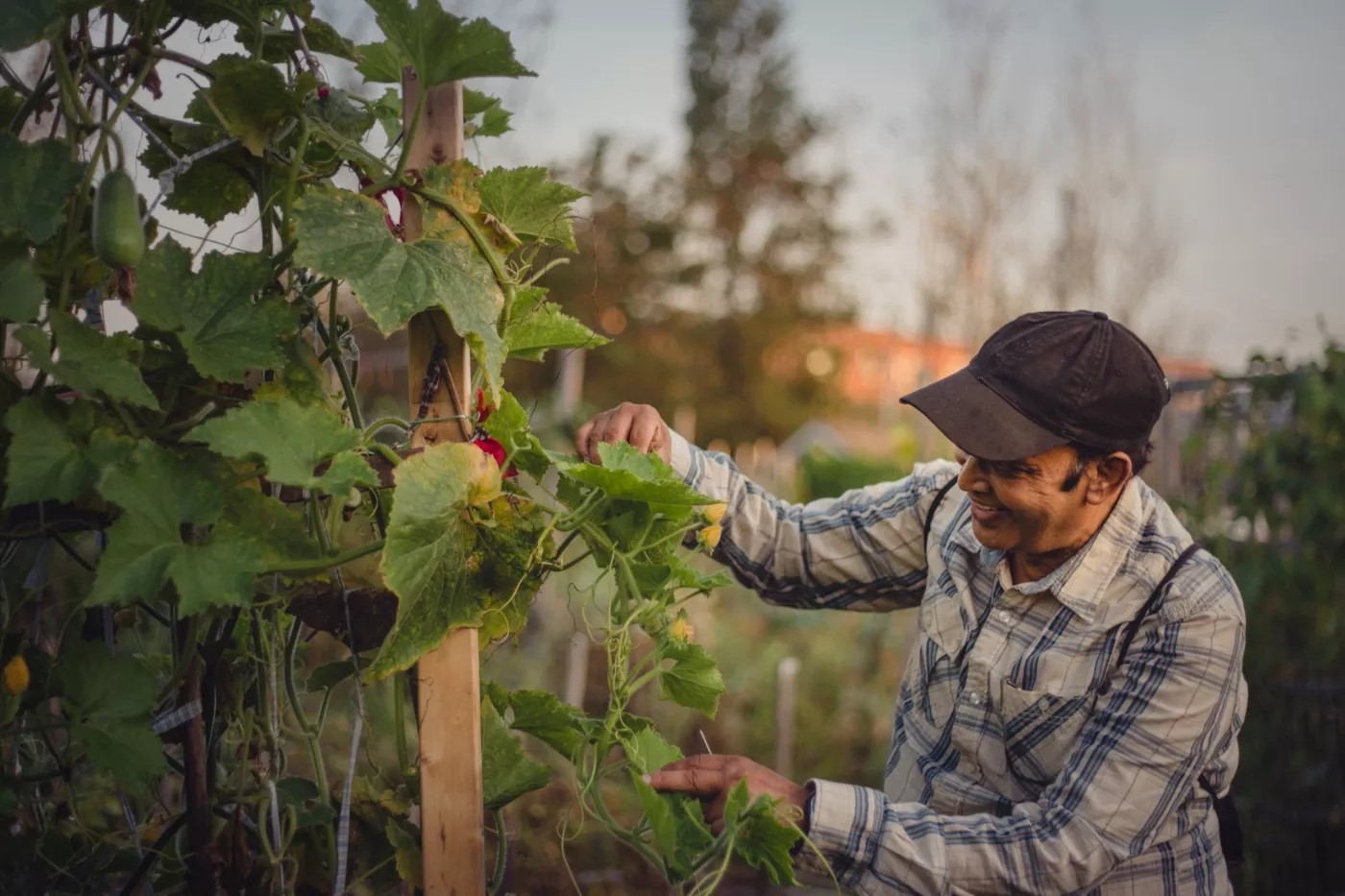With the goal of providing the population with diversified access to local, sustainable and healthy agriculture within 500 meters of their place of residence, Rosemont-La Petite-Patrie is adopting an urban agriculture policy, focused on citizen involvement, to develop its full potential throughout the territory by 2030.
In line with the borough's ecological transition process, this policy, developed in collaboration with AU/LAB, is based on six orientations and proposes 75 actions to open up public, private and institutional spaces to innovative urban agriculture initiatives led by citizens and community-based partners.
Here are some of the projects and initiatives that the Borough intends to put forward:
- Promotion of the practice of urban agriculture in residential areas
- Open gardens for urban agriculture
- Urban orchards and forest gardening in parks
- Vegetable farms and rooftop greenhouses in heavily mineralized sectors such as Marconi-Alexandra and Espaces Affaires Rosemont
- Urban greenhouses in front yards and inside buildings
- Projects combining market gardening on roofs and sale of fresh vegetables
The policy focuses, among other things, on greater regulatory flexibility, a stronger network of citizens and actors involved on the ground (producers, community organizations, businesses, building owners, etc.) and a more sustained integration of urban agriculture into territorial planning.
Establishment of an urban agricultural cooperative
An important step in this policy is the establishment of a unique governance body for urban agriculture in Montreal, the objective being to ensure the full participation of citizens and local actors in the implementation and monitoring of the policy's actions. This entity will also be able to provide urban agriculture products and services adapted to the reality and needs of citizens, while promoting the adoption of good practices.
"Rosemont-La Petite-Patrie has stood out for several years with its great diversity of urban agriculture initiatives! This policy will make this practice more democratic by maximizing citizens' access to free gardening spaces in parks, to an edible tree patch or to baskets of urban agriculture products in their local grocery store. The aim is also to federate actors and initiatives in order to propel new practices and exploit a diversity of production sites to make urban agriculture a powerful force for food resilience, local economy and social cohesion," explains François William Croteau, mayor of the Rosemont-La Petite-Patrie borough.
"For several years, the borough of Rosemont-La Petite-Patrie has been a laboratory for innovation in urban agriculture. Whether it is through the introduction of chickens, sheep and aquaculture farms on its territory, free gardens in parks or its numerous plantings of fruit trees and bushes on the public domain, the urban agriculture policy consolidates the work that has been accomplished while outlining the future. The Urban Agriculture Laboratory is particularly proud to have contributed to the development of this policy that is both ambitious and deeply citizen-based," said Jean-Philippe Vermette, Director of Interventions and Public Policy at AU/LAB.
"We salute this initiative of Rosemont-La Petite-Patrie, which contributes to the deployment of urban agriculture throughout Montreal in a logic of proximity with the citizens and for their benefit. The urban agriculture sector is emerging and offers a way to consume quality food produced locally, while ensuring the resilience of our city. Montreal is already well positioned in the urban agriculture sector and recognized internationally for its innovation and dynamism in this field. We want to maintain our leadership position and this sector will certainly contribute to our green and resilient recovery," said Laurence Lavigne Lalonde, the Executive Committee member responsible for the ecological transition and resilience, and urban agriculture.
Portrait of urban agriculture in RPP in 2020
- 9 community gardens and over 1170 gardeners
- 20 community gardens and 1 free garden
- 576 greening projects
- 136 green alleys (2021)
- Over 1000 public fruit trees
- 1775 herb and tomato plants distributed to citizens



